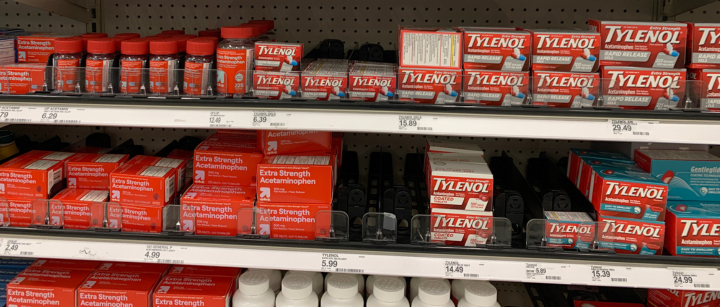Listen to the article
Trump’s Claims About Tylenol and Autism Lack Scientific Consensus, Experts Say
In a highly anticipated press conference on September 22, President Donald Trump made controversial claims about acetaminophen (Tylenol), pregnancy, and autism that have drawn immediate pushback from medical experts and professional organizations.
Trump, who had billed the event as “one of the biggest medical announcements in the history of our country,” repeatedly warned pregnant women against taking Tylenol, urging them to “tough it out” instead. The president claimed the medication is associated with an increased risk of autism in children.
“Don’t take Tylenol. Don’t take it. Fight like hell not to take it,” Trump stated, repeating the phrase approximately a dozen times throughout the press conference.
However, medical organizations were quick to point out that no causal relationship between acetaminophen use during pregnancy and autism has been definitively established, despite years of research on the topic.
“Today’s announcement by HHS is not backed by the full body of scientific evidence and dangerously simplifies the many and complex causes of neurologic challenges in children,” said Dr. Steven J. Fleischman, president of the American College of Obstetricians and Gynecologists, in a statement released after the press conference.
The Society for Maternal-Fetal Medicine echoed this position, stating that “a thorough review of existing research suggesting a potential link between acetaminophen use during pregnancy and an increased risk of autism and attention deficit and hyperactivity disorder in children has not established a causal relationship.”
FDA Commissioner Dr. Marty Makary cited studies from 2019 showing associations between prenatal acetaminophen exposure and neurodevelopmental disorders. Makary also quoted Dr. Andrea Baccarelli, dean of Harvard University’s public health school, saying “there is a causal relationship” between Tylenol and autism.
However, this characterization appears more definitive than Baccarelli’s recent public statements. In a statement provided to the White House before the press conference, Baccarelli more cautiously noted that evidence “lends support to the possibility of a causal relationship” while emphasizing that more research is needed “to confirm the association and determine causality.”
It’s worth noting that in earlier testimony for a 2023 lawsuit against acetaminophen manufacturers, Baccarelli had made stronger claims about causation. The judge in that case deemed his expert opinion inadmissible, citing concerns that he had “cherry-picked and misrepresented study results.”
Brian Lee, a professor of epidemiology at Drexel University, told reporters that recent evidence actually points away from a causal link. “As far as the evidence goes, it points towards no causal association between acetaminophen use during pregnancy and risk of neurodevelopmental disorders, including autism,” Lee said.
Medical experts also expressed concern about Trump’s advice for pregnant women to “tough it out” rather than take acetaminophen. Fleischman noted that the conditions acetaminophen treats during pregnancy “can create severe morbidity and mortality for the pregnant person and the fetus.”
“Untreated fever, particularly in the first trimester, increases the risk of miscarriage, birth defects, and premature birth, and untreated pain can lead to maternal depression, anxiety, and high blood pressure,” according to the Society for Maternal-Fetal Medicine.
Trump also advised against giving acetaminophen to babies, particularly after vaccinations. “Don’t give Tylenol to the baby after the baby’s born,” he said. “Every time the baby gets a shot… they say, ‘Here, take a cup of Tylenol.’ Don’t take Tylenol. Don’t have your baby take Tylenol.”
The American Academy of Pediatrics contradicts this advice on its website, stating that “studies do not point to a causal link between the use of acetaminophen and autism in children or in pregnancy.” The organization maintains that acetaminophen is “safe for children when taken, or dosed, correctly and under the guidance of a child’s pediatrician.”
Dr. Paul A. Offit, a vaccine expert at the Children’s Hospital of Philadelphia, noted that autism risk factors are typically established before birth, making it unlikely that postnatal acetaminophen exposure would affect autism rates.
The press conference was initially promised by Health and Human Services Secretary Robert F. Kennedy Jr., who had indicated in August that the administration would make announcements pinpointing the causes of autism in September.
Despite the bold claims, the actual guidance released by HHS recommends that doctors prescribe “the lowest effective dose for the shortest duration when treatment is required” – advice that largely aligns with existing recommendations from medical organizations.
Fact Checker
Verify the accuracy of this article using The Disinformation Commission analysis and real-time sources.



